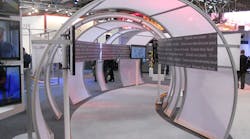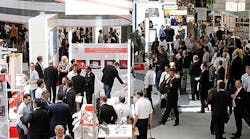United Auto Workers union employees at six Navistar International plants have approved a new four-year labor agreement, according to the diesel engine and truck manufacturer. The new contract replaces a three-year pact that expired October 1 for about 2,000 workers at Navistar operations in Atlanta, Dallas, Fort Wayne, Ind., Melrose Park, Ill., Springfield, Ill., and York, Pa. Navistar’s plants in Alabama and Texas, and in Mexico, are non-union operations.
The manufacturer said only that a majority of workers endorsed the new deal. It has about 16,000 workers worldwide.
One notable aspect of the new contract will be a one-time early-retirement package for certain workers, which Navistar said will help it arrive at a more competitive wage and benefit structure. Details of the buy-out were not released.
Navistar listed some provisions of the new deal to include increased flexibility in production of truck and engine models, to deploy manufacturing capacity more effectively; investment in new technology at Navistar’s Melrose Park, Ill., locations, for testing and validation on current products and others in development; a “significantly improved” package for new hires, with more competitive and predictable cost structure; health care cost sharing by employees; and flexibility in managing non-core activities.
“The new contract is mutually beneficial. It will improve the operating structure and flexibility at our UAW-represented facilities to better compete in today’s market,” stated chairman, president and CEO Dan Ustian. “At the same time, it maintains a good quality of life for our employees and retirees.”
Negotiations continued with no disruption to operations at the plants after the expiration of the previous agreement, and a new proposal was announced October 18. The chairman commended the union for its efforts to address the company’s concerns during the negotiations.
“Going forward, we expect these operations to more easily adjust and cost-effectively perform throughout the industry cycle,” Ustian added. “More competitive facilities increase job security and provide confidence of viability in the future.”
Latest from Industry Events
Latest from Industry Events
GIFA
Inductotherm at GIFA 2015
Aug. 19, 2015
GIFA
Crowds, Commerce Confirm Success for GIFA 2015
June 23, 2015
GIFA
Metalcasting’s Historic Moment
May 18, 2015
GIFA
Exhibitors Already Pushing GIFA to Set New Records
March 11, 2015
GIFA
Bringing the World Together
March 7, 2015







